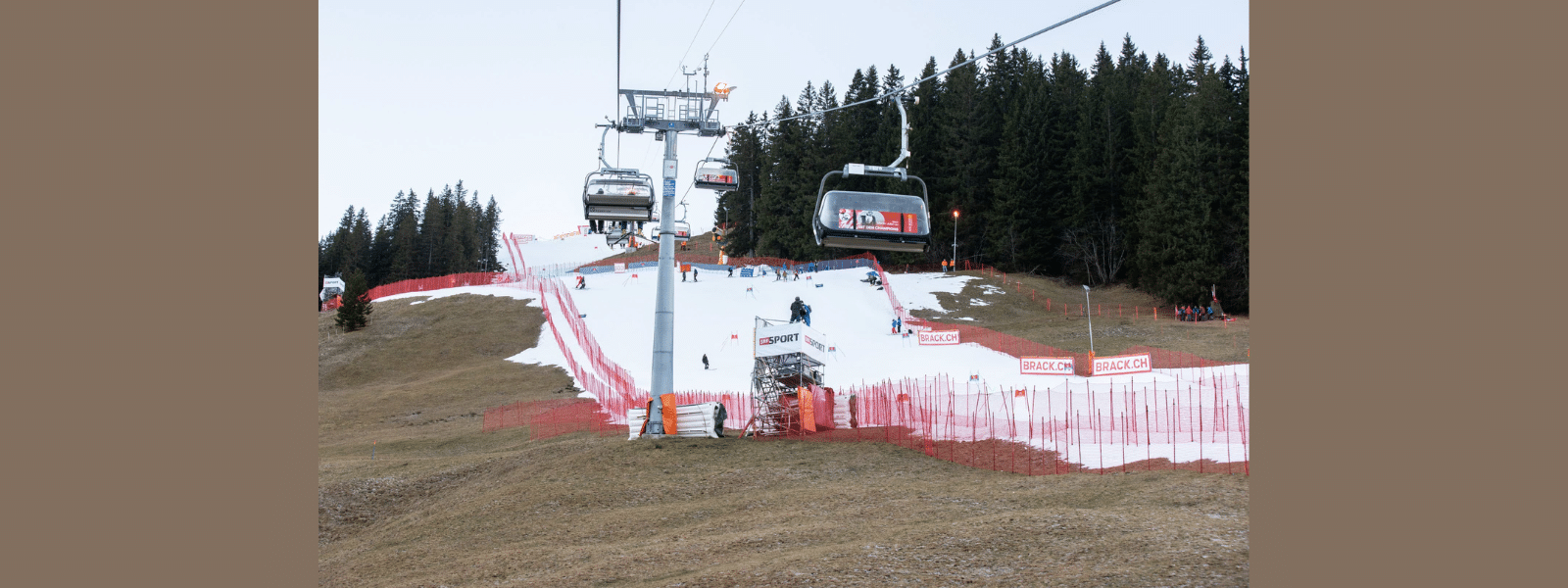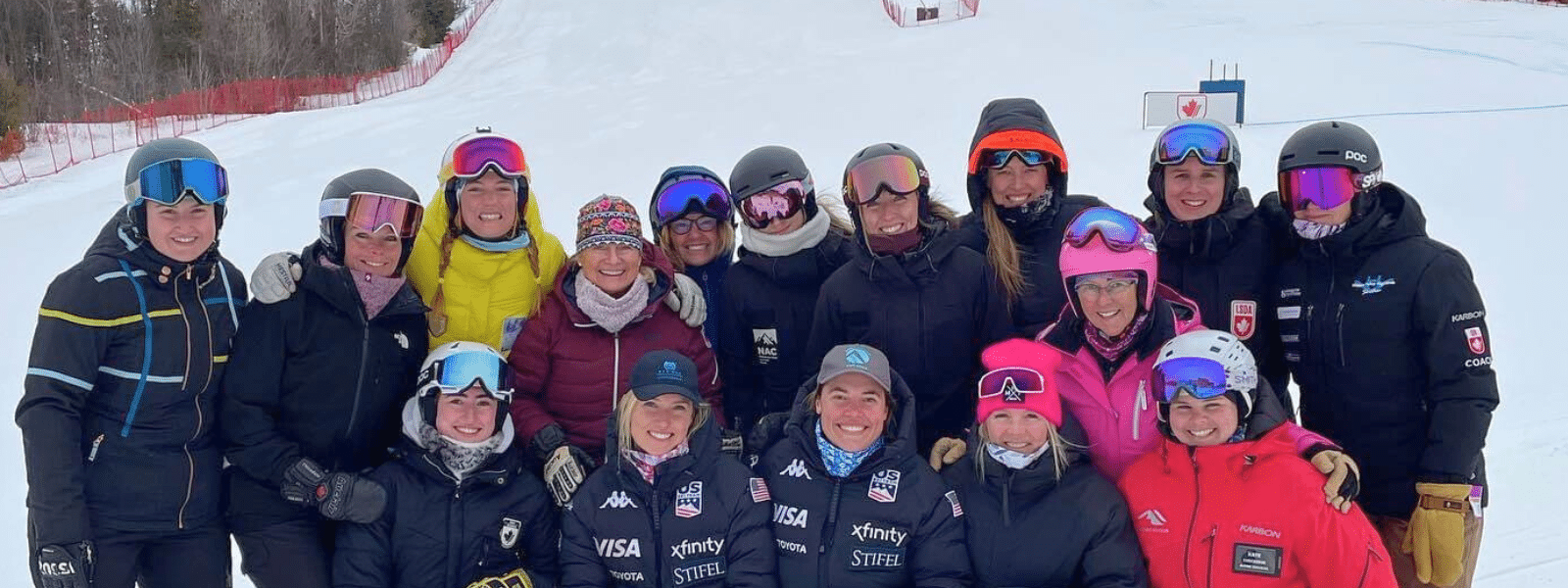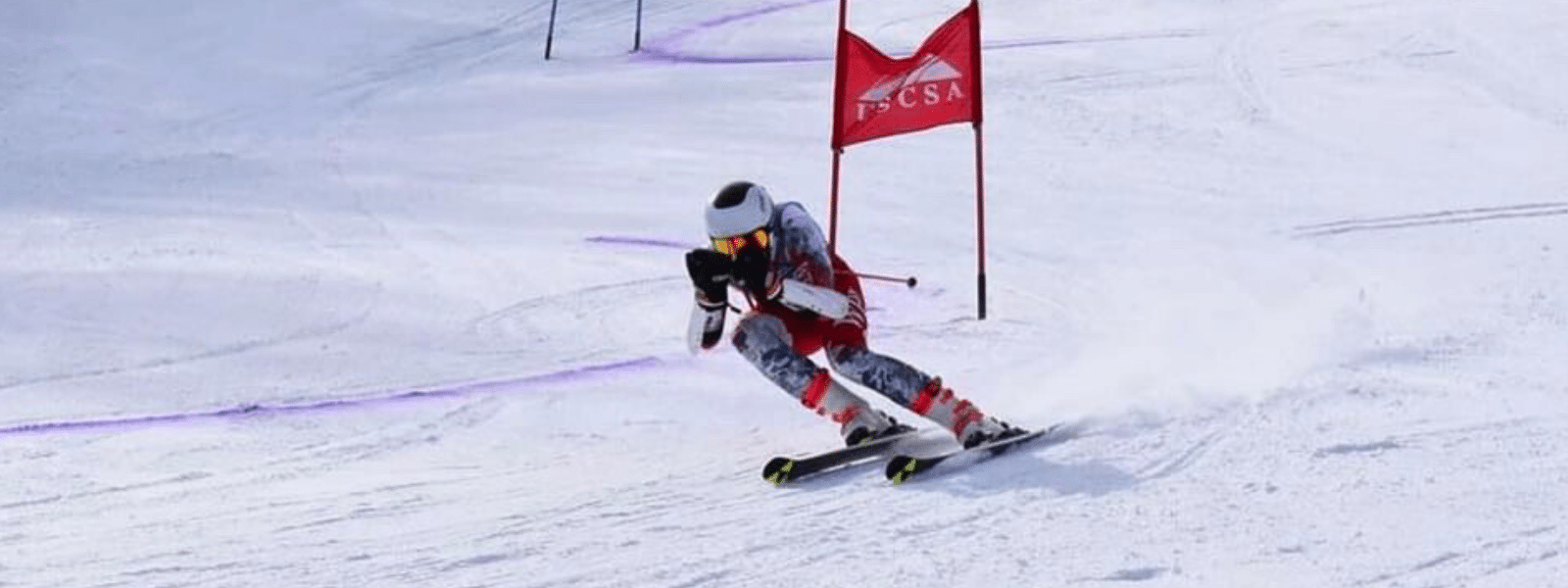Bridging the Sports Psychology Gap in Junior Racing
When Doug and Kelley Lewis were rising through the sport of ski racing on their way to becoming World Cup athletes, their journeys were full of world-class training, great coaching, and supportive families. The one thing they felt lacked emphasis, yet played a huge role in their skiing, was sports psychology. As they fought to achieve their childhood dreams, understanding how to process failure, success, joy, and pain, amongst a myriad of other emotions was a key part of managing stress and expectations. Back in the ’70s when the Lewises were training at a junior level, they knew that being physically strong was important, but had to figure out the importance of mental strength on their own.
“When we were racing thirty years ago, the mental training wasn’t really part of the conversation, unfortunately, and I personally think I could have used some help in that department,” says Kelley Lewis, laughing. “So we wanted to take that concept and restart that process.”
Both Doug and Kelly are deeply involved with ELITEAM, a program that targets teaching young people the importance of being a complete athlete – an athlete that excels in sports physiology, nutrition, and in sports psychology. Through this program, the couple have the chance to apply years of training and knowledge gained about the sport from both their perspectives as retired athletes and as coaches, and give back to young people that have big dreams just like they did. Each year, ELITEAM conducts a series of camps and clinics for junior racers and junior race clubs, but the Lewises soon realized they wanted to reach more young athletes than the couple hundred they interact with directly each year.
As an Olympian and World Championship medalist in the downhill, when Doug Lewis reflects on his career, he knows he could not have reached the heights he did if it was not for his capacity to self reflect. Journaling played a key role in his career as a ski racer and in his life as he worked to interpret and ingest his training regiment, as well as his mental struggles and triumphs as an athlete. Kelley Lewis also used a similar journaling method to reflect on her days on the hill, to seek out pain points and highlight her progress. So the couple decided to take it a step further and develop the ELITEAM Journal – a tool that clubs, coaches, and parents could give their junior athletes to teach them the importance of self awareness and reflection early on in their ski racing career.
The journal, geared toward 8 – 14-year-old athletes, is broken up into five sections – Stats, Fun, Facts, Season Prep, Training, Competitions, and Season Recap. Within each section, athletes will find a series of “fill-in-the-blank” style questions that ask them to complete sentences, circle yes or no, rate experiences, and fill out checklists, in order to make the content easy to digest. 18 training pages can be used to reflect on progress once a week, designed to last the entirety of the season. Post race evaluations give an athlete the chance to see past results so that they can learn something from each race no matter how they performed. There is even a dedicated ‘Thank You Note’ section that encourages kids to have gratitude and show appreciation for the coaches, teammates, parents, and other role models that have helped support them throughout the season. Sprinkle in some nutrition tips and tricks alongside quotes from Olympic athletes such as Bryce Bennett, Mikaela Shiffrin, and Lindsey Vonn and the journal comes together as a resource to make it easy for any junior to spend some time getting to know themselves as an athlete and as a person.
“Embracing failure is so important,” says Kelley Lewis. “Junior racers live and die by their results, and there’s just so much more to a day of training or a day of racing than just the results. It’s helping them see the bigger picture so that you don’t have to completely rely on your coach to help you through those tough times. To be able to learn to help yourself is an important component to that process.”

While the journal is designed to help give kids the tools to be more independent in their study of ski racing and self, it is also an important tool that can be used by coaches and parents to support their athletes through their ski racing journey. Coaching and parenting play key roles in the development of a successful young racer. A coach or a parent who takes the time to check in with their athlete and discuss some of the things outlined in the journal, can take the process to the next level. Kelley Lewis, who has been coaching for over 25 years, says sitting down and getting to know a kid creates an opportunity for coaches and parents to better understand how to support and motivate them going forward.
“It’s a priority to teach a kid how to plant their pole when they’re young,” she explains. “It’s a priority to teach them to pressure the outside ski. It should also be a priority to teach them the mental skills that they need to cope and be successful.”
Recently, the Burke Mountain Academy Junior Program incorporated the ELITEAM Journals into their November training camp for their U12/U14 athletes, and so far there are no complaints. Ashley Sargent, Head U14 Coach of the BMA Junior Program, says she has already noticed that the journal has sparked conversations amongst the athletes and the staff off the hill. Not only is the journal a valuable tool for athletes individually, but it is also powerful in the means of team building.
“The ELITEAM Journal is interactive and fun for the kids but more importantly, a great tool for them to self-evaluate,” says Sargent. “It gives us coaches an ability to strengthen our daily message to the athletes, whether it’s fundamental development of their skills, nutrition, self-awareness or race day prep. We have built journaling into our daily training plan and hope it will enrich their ski racing experience.”

Staff members at the Franconia Ski Club have also incorporated the journal into their junior programs during the early season, and have found it to be an excellent tool to reinforce skills taught both on the hill and in the classroom.
“We were looking for a way to bridge athletics and academics, so we chose to include the ELITEAM Journal in our program because it bridges the hill and the classroom,” says Amy Barnaby, the Lead Teacher of Franconia’s Winter Term program. “Both the format and the information included in the journal, encourage racers to independently reflect on their training in a positive way that focuses on the process. Throughout the journal the athlete gains insights that build self awareness regarding training, nutrition, sleep, and mindset. All important topics for living a long, healthy life. We strive to create athletes who are independent, life long learners with a growth mindset. This journal lays a solid foundation for achieving our goals.”
Given the positive feedback the Lewis’ have received thus far, and how many trips they seem to be making to the post office to make shipments nowadays, they are hopeful that the ELITEAM Journal’s potential is being recognized and that a seismic shift in sports psychology at the junior level is well on its way.
“That’s the greatest gift you can give a kid, confidence,” says Kelley Lewis. “You can’t actually give it to them, but you can set them up for success, you can lay down the foundation so that they can learn it and be self-sufficient on their own. ”
“I could not have won a World Championship medal if on that day, I did not have the confidence to stand in the start gate and say, ‘I know I can do this,’ adds Doug Lewis. “I want to give the tools to these athletes so that when I see a young American in that starting gate of a World Cup, I want them to believe in themselves and know that they can do it. It starts with a notebook like this.”





















